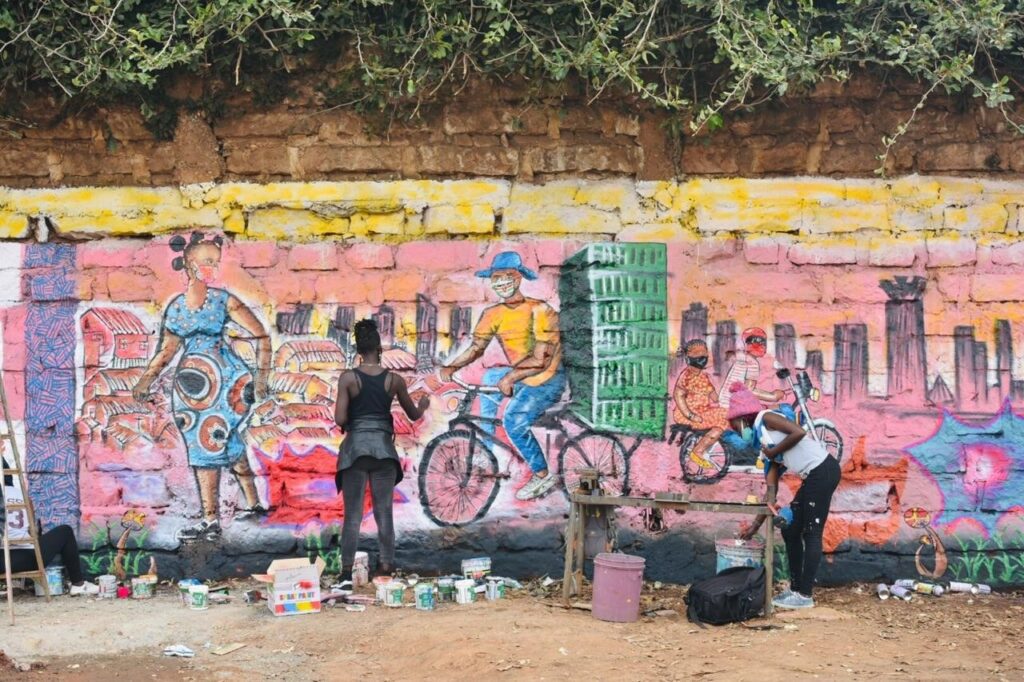By Stefanie Holzwarth
The COVID-19 pandemic is hitting the world’s most vulnerable people the hardest – particularly the ones living in informal settlements. More than 60% of people in Nairobi reside in such areas, which are densely populated, with overcrowded public transport systems, little or no waste management, an absence of basic services and poor housing. In Kenya, the economic consequences for those in informal settlements will be long-lasting. As daily activities are suspended and movement is restricted, day laborers and those in informal employment are losing their income.
UN-Habitat has worked with local youth and artists in Kenya to develop key messages on COVID-19, such as on washing hands, ensuring physical distance or wearing a mask. Through graffiti art on walls, these key messages are now providing important information on safety and behavior precautions in public transport, or when moving around the city on a bicycle or motorcycle. The artwork will be helpful for the masses in informal settlements, especially for those that are less digitally connected to TV or radio channels. Christopher Njoroge from the Runda Youth Sports Association, one of the local NGO partners, appreciates the support of UN-Habitat in his settlement. “This is actually the first graffiti in the history of Githogoro and what I am seeing here is that many people will be educated and many people will be able to be reached, they are illiterate and they are able to see the message and they are able to relate to it” – he said.

Young artists painting COVID-19 messages on a wall in Githogoro slum (credit: UN-Habitat)
UN-Habitat uses graffiti for COVID-19 awareness raising in Kenya
You are currently viewing a placeholder content from Default. To access the actual content, click the button below. Please note that doing so will share data with third-party providers.
Besides raising awareness on COVID-19 and educating the public, the project is also empowering young artists by providing them with an opportunity in a time where many might have lost their jobs and regular incomes.

“Sanitize”, “Wear your mask” and “Keep distance” are among the messages that are illustrated in this mural in Mathare slum (credit: UN-Habitat)
UN-Habitat, a partner of the Transformative Urban Mobility Initiative, will continue working with communities and local governments in the fight against COVID-19 and beyond. “We hope that cities can utilize COVID-19 as an opportunity to reflect on their urban development patterns and mobility systems – and to build back better, more resilient and more sustainable cities post COVID-19,” said Stefanie Holzwarth, Urban Mobility, UN-Habitat. “Cities have to be prepared for future environmental and health hazards” – she added.
